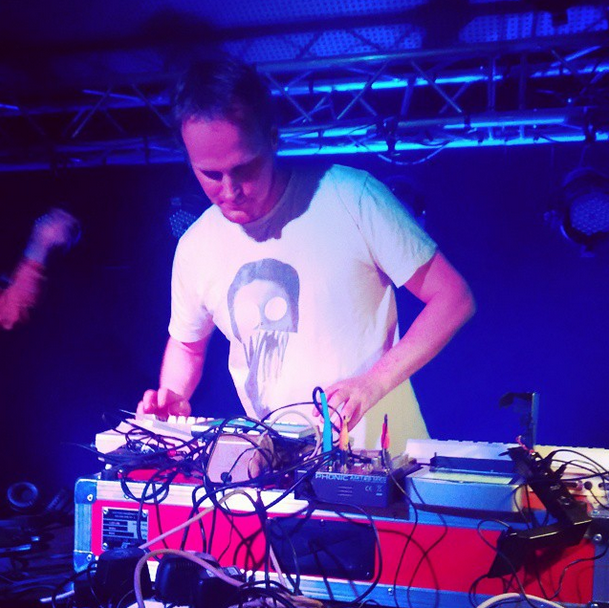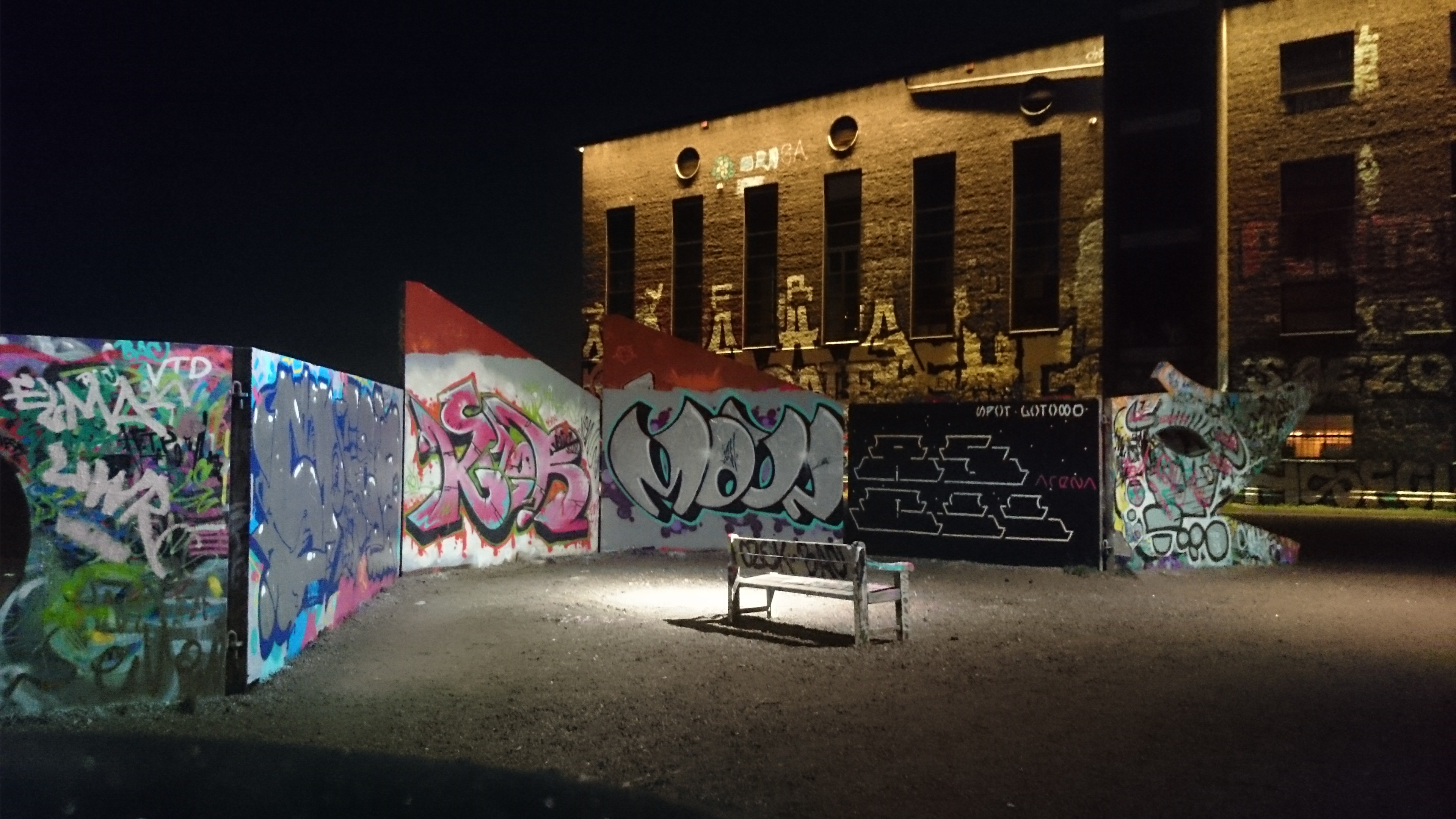Little Tour of Big Australia
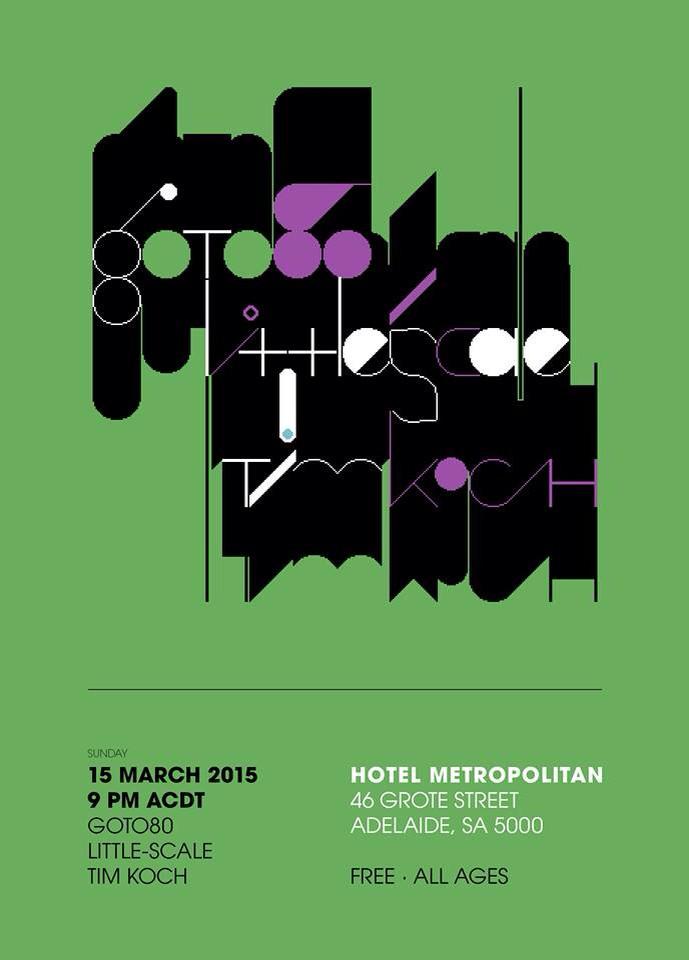
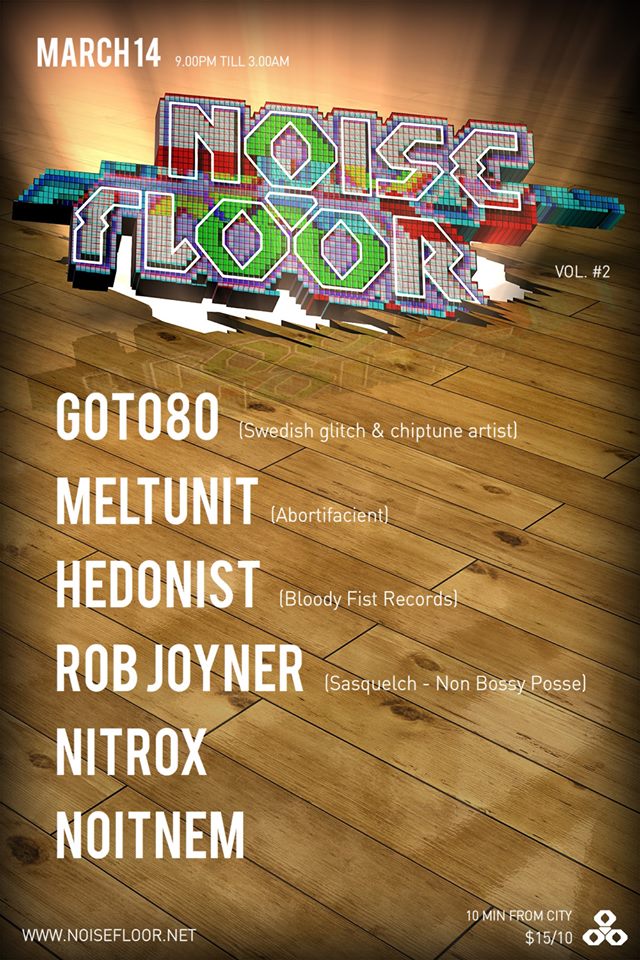
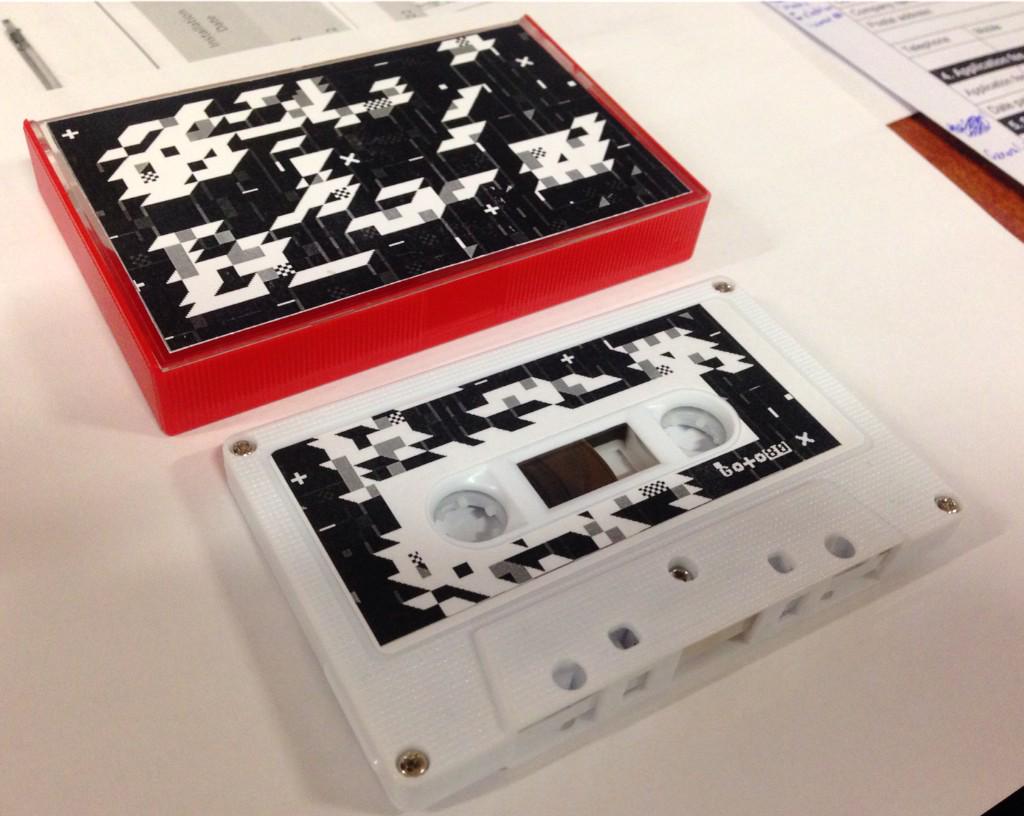
Heading to Australia next week! To celebrate I’m releasing a new album (90 minute cassette) that heads down the foggy C64 and 808 ambient electro road. Really happy with this one! They’re quite limited, but if you’re quick I’ll put you on the list to get one if there’s any left after the tour. Use electronic mail.
(The green poster design by Minusbaby. The cassette designed by iLKke. The Square Sounds video made by cTrix I think?)
So — quite happy to be playing with some great artists in good ol’ Oz. Check this out:
March 14: Noise Floor, Sydney w/ MeltUnit, Hedonist, Rob Joyner, NITROX, and more
March 15: Hotel Metro, Adelaide w/ little-scale and Tim Koch.
March 16: Soundpond, Adelaide + stream. Live C64-improv in radio and stream. More info.
March 21: Square Sounds Festival, Melbourne w/ Henry Homesweet, Chip Tanaka, NNNNNNNNNN, and many more!
My Teletext Software at Ars Electronica Center
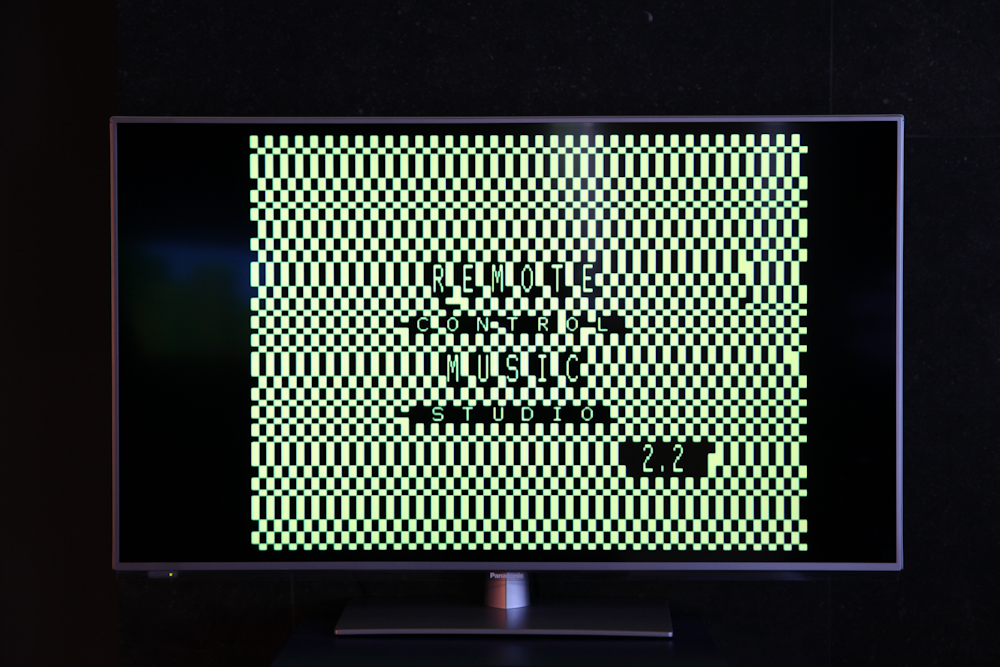
Since Austria’s teletext service ORF just turned 35 years old, Ars Electronica Center is now showing works from the International Teletext Art Festival of 2013 and 2014. Among them is, eh, “stills” from my Remote Control Music Studio from 2013.
Australia Hello!
Good news – I’m coming to Australia in March to perform at Square Sounds Festival in Melbourne! Looks like it’s going to be a pretty sweet event, so you shouldn’t miss this if you’re an Australasian.
Will also play atleast one other show, so stay tuned aussies! If you want me to come play somewhere, hit me up.
Hm, so it’s actually been 11 years since I played in Melbourne and Brisbane..
ANTI-HUMANISM
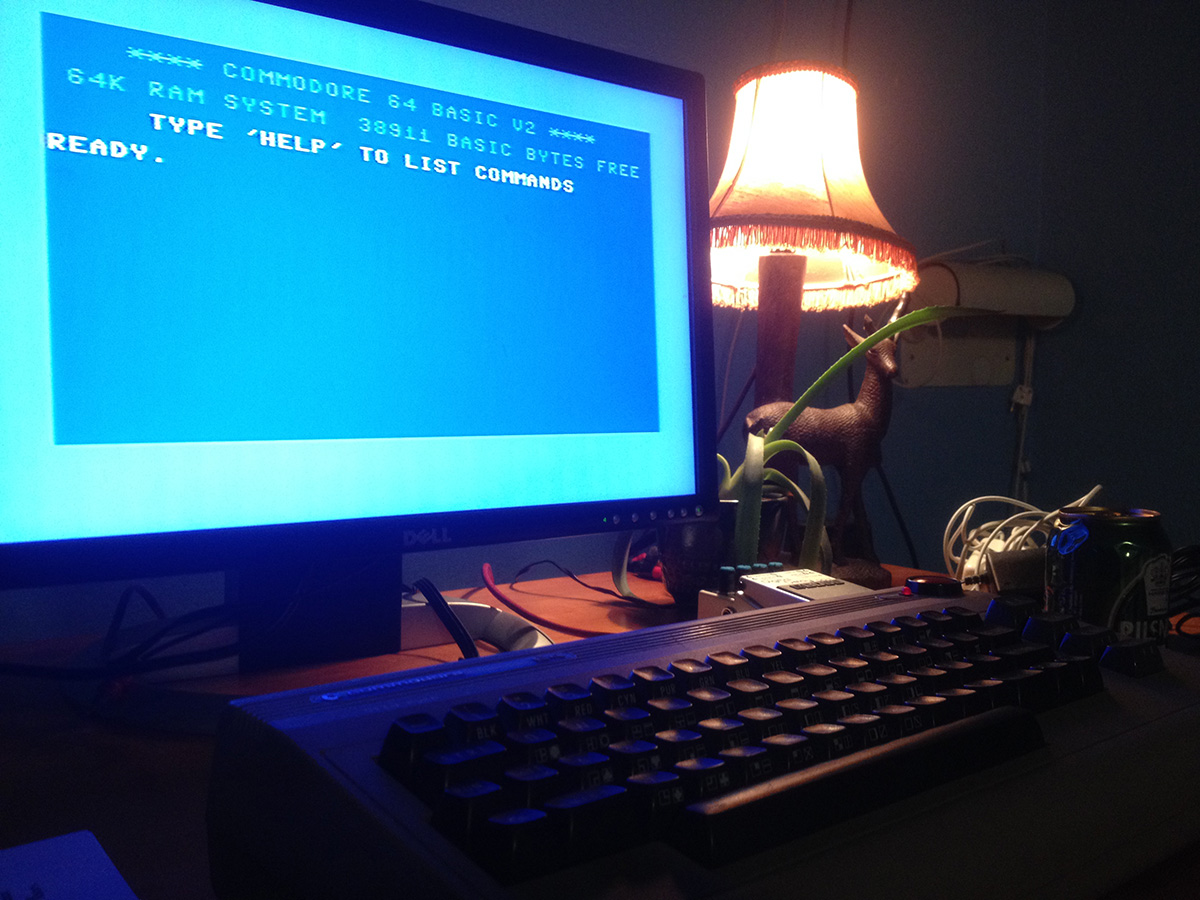
So, last weekend I was in Copenhagen to perform at the party for Lu Yang‘s exhibition ANTI-HUMANISM. It was a wild night, with Meneo bringing the crowd into pure naked extacy, as always.
I started the evening with two improvised sessions, where I continuously took requests from the audience about what music to do. I sat in an office/slave-like setting (see image). Sort of like a mix between Dataslav and my recent improv-explorations. And it went really well! I’ll see if I can get some recordings of it online.
I was also asked to write a text about 8-bit music for the catalogue of the exhibition. You can read it here: A retrospective on the stories and aesthetics of 8-bit music
Chipspeech Says it Like it is
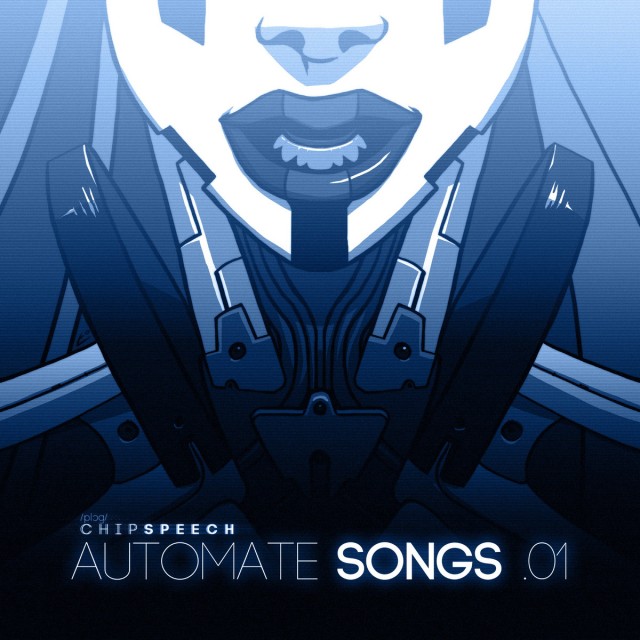
I’ve been beta testing a new VSTi from the meticulous lo-fi emulator dominators in Plogue. Chipspeech finally makes it possible to sing with old speech synthesis chips! So I’m working on some songs, and I put Crossword Puzzle in the Automate compilation of Chipspeech songs, that just came out.
Earwormy FM-pop with crossword propaganda for the whole world!
Milano and Rome
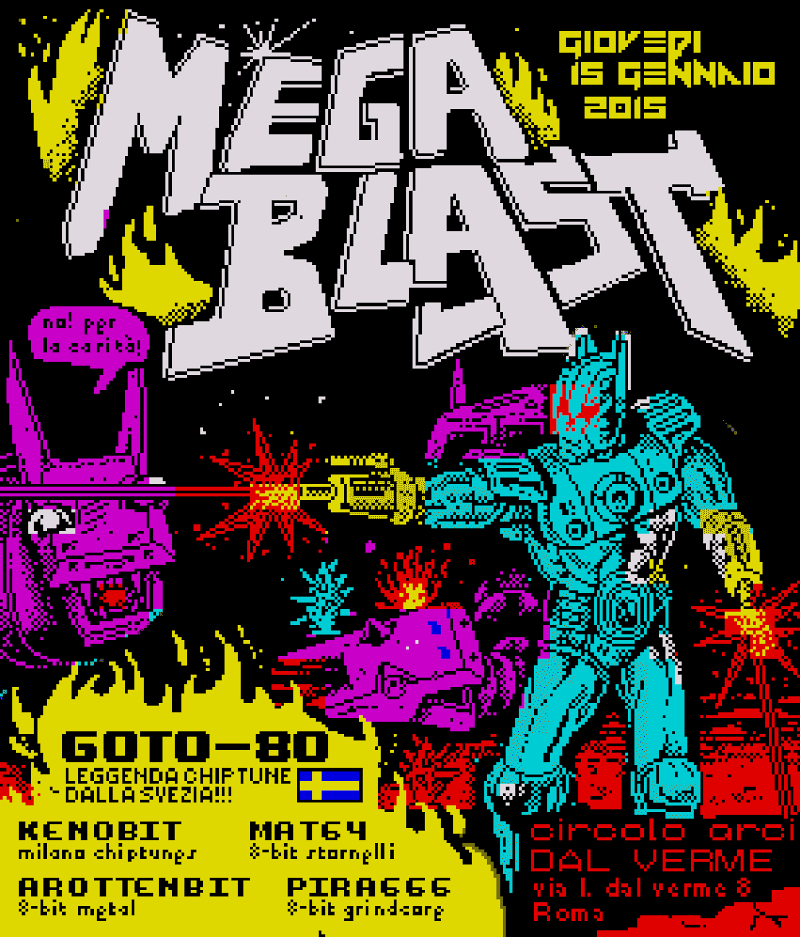
Two shows in Italy coming up!
15 january: Megablast, Rome
w/ Mat64, Pira666, arottenbit, Kenobit
16 january: Milano Chiptune Underground #1, Milano
w/ arottenbit, Kenobit, Tonylight
2014 Roundup
Yeah 2014 bla bla. Well, here’s what I was up to: Among the live performances I did, I played in Valencia for the final party of Europe in 8 Bits, in Manchester for the chipmusic festival Superbyte, in a bus parked in Gothenburg for Snel Hest, at Flogsta’s 10 year skweee anniversary, and I performed a live petscii-movie with Raquel Meyers for kids in Paris.
I’ve kept on doing t3xtm0.de (Tumblr, Twitter) together with Raquel Meyers, and we now have 2700+ posts with 5000+ images, and about 6000 followers and le Tumblr. Chipflip is also moving along with some pretty great new releases in 2014, and some new text material aswell.
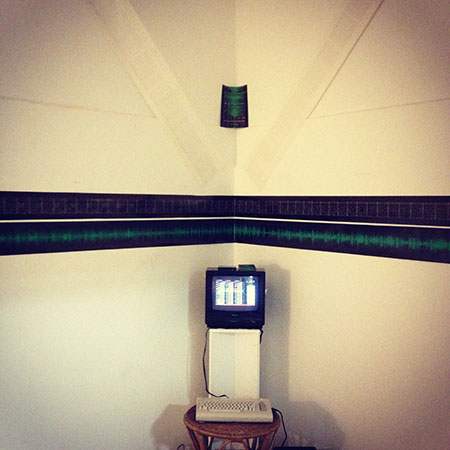
Artwise, there were for example faxes, L0ve Byt3z, Kung Fu Glitch, HT Gold, and I made an art exhibition/performance at Bei Koc gallery in Hannover. I printed the song Linkan in 3 forms: as audio waveform, as the interface view of the program it was made in, and as RAM-data on a dot matrix printer. For the opening I made two very different jams with the song, which was recorded on two cassettes that I don’t know what happened to. So – this was all a small scale experiment about what music is, how it is represented, and how it’s distributed.

I presented the Custom8 project, where you can order your own custom album by me for 30 euros. And there was quite a response! Kept me busy for several weeks. The way I see it, is that I spend 1 hour going through thousands of my own songs to compile what you ask for. The way you see it, you are a happy consumer in the age of mass customization. Or something..
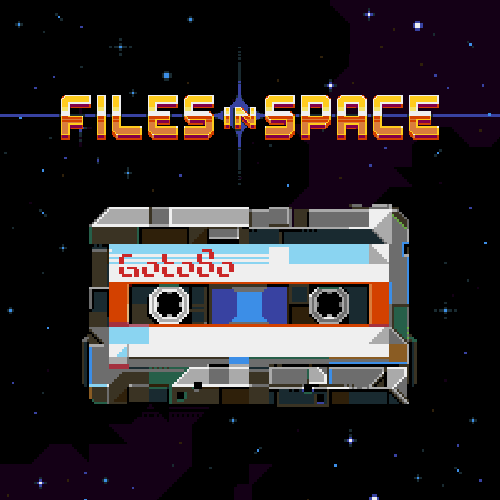
I released an album, more or less called Files in Space, that sold out in a week but is now available as cassettes or CD again. I played with obfuscation by replacing alphabetical letters with similar-looking Unicode characters, and also spammed the titles with diacritics, which led to problems for operating systems, music distributors and file systems. In other words – big success!
I had music featured in films, documentaries, and games. I released two mixes, and the one I did together with Divag was #1 at the IDM-charts at Mixcloud.
I’ve continued to make improvised C64-sets with the defMON tracker. I just start the computer and go. Without any preparations whatsoever, I make the instruments and the compositions on the fly. In 2014 I did it after screenings of movies about Aaron Schwartz and Piratbyrån at Doc Lounge, at the live coding after party for the FARM-workshop, and at the academic live composing event Friktion.
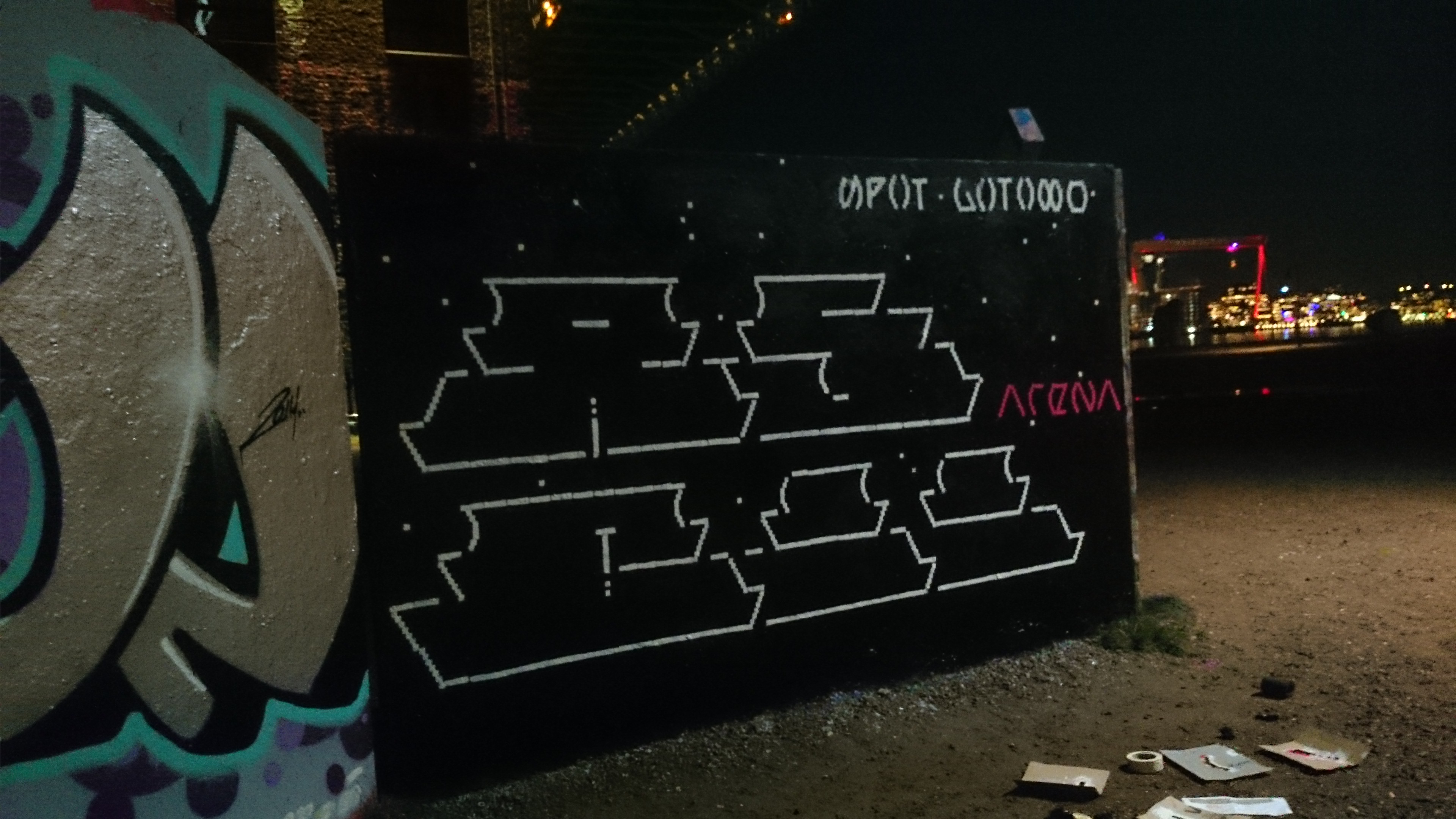
I made some Ascii graffiti and thought I was the first one to do so, only to find that a US startup made a similar thing just a few weeks before. Not sure they did it character-by-character though. But maybe nobody cares?
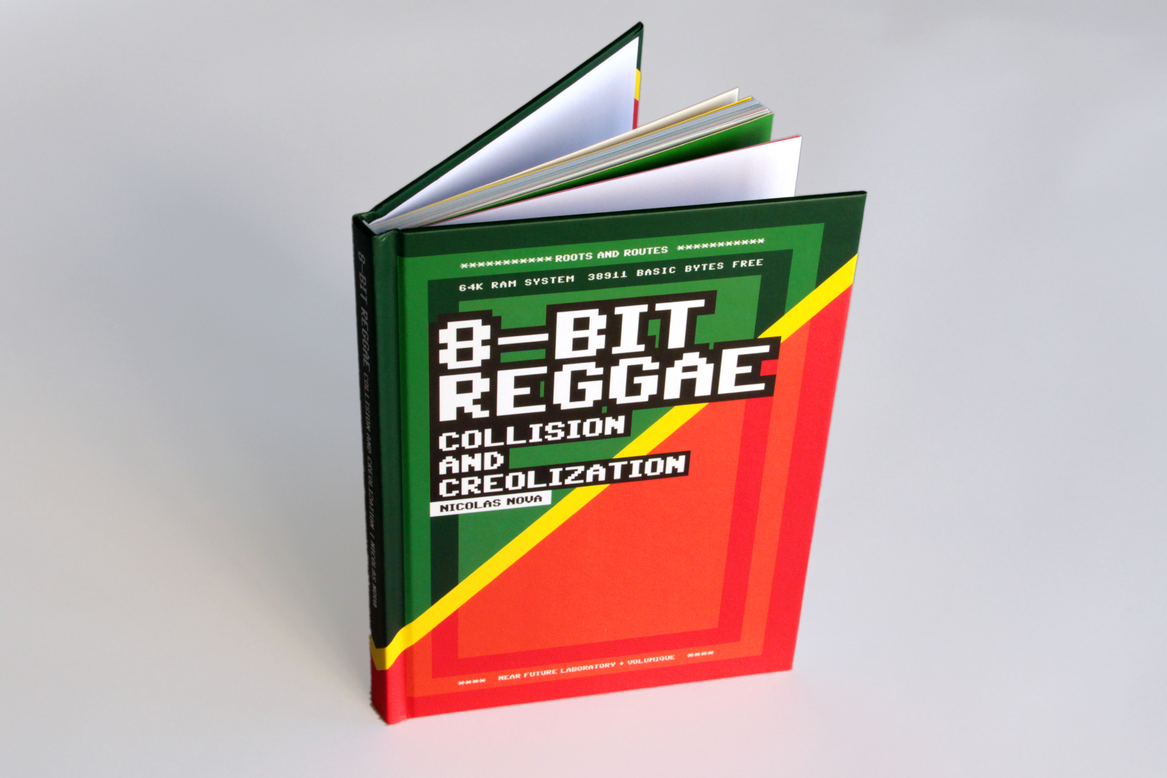
Yeah, and the 8-bit reggae book was released. I was interviewed for it and made a song for the book aswell.
Boink 14!
ACID DLL
I put out a noisy acid choon for Acid December a few days ago. There’s lots of nice music there from people like Linde, Vim, Salkin, etc.
Hotlinkin’ like a bad boy: MP3
Also at Soundcloud
X-Ta Si, X-Ta No Live in Valencia
Last weekend at the Europe in 8 Bits Festival, I’m performed a cover of X-Ta Si, X-Ta No, originally made by Chimo Bayo in 1991. Just as the bakalao music genre exploded in the south of Spain with the Ruta Destroy.
This isn’t the first time I cover the song. I performed another version of it in Barcelona a few years ago. But now it’s in the original barrio de bakalaoz. Arriba!
Even better, I went to a bakalao party the day before this gig to get into the spirit. Great to hear some of the earlier more EBM-ish 80’s bakalao.
(Yeah so I performed with my brand new setup: C64 and Amiga600)
Ascii Graffiti
ASCII-graffiti! Using an Ascii Arena logo by Spot, I cut out stencils from pizza boxes for the characters / \ ( ) | _ and sprayed this. Character by character. In freezing cold Götlabörj City. Observed by sceptical writers with knives, yo.

